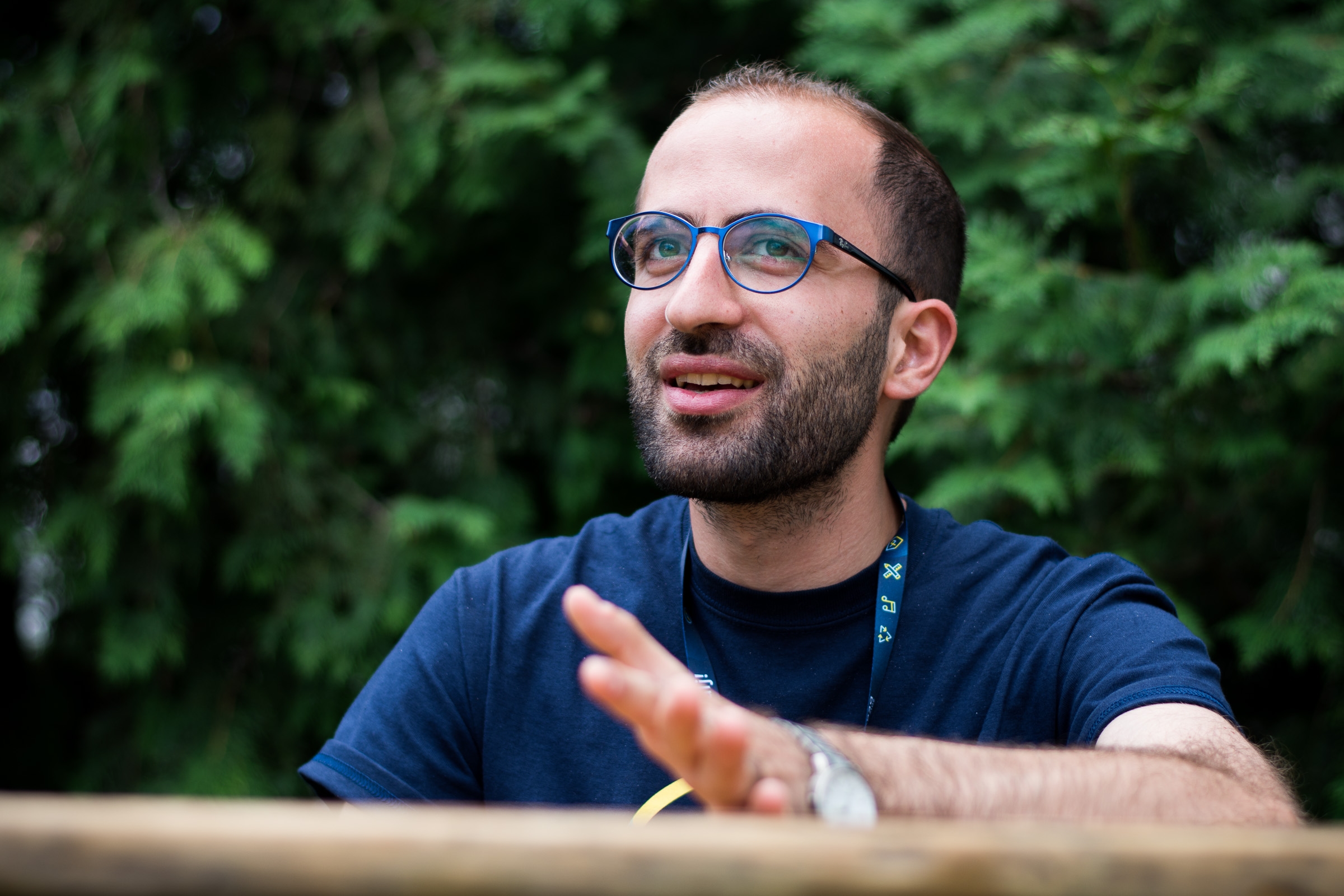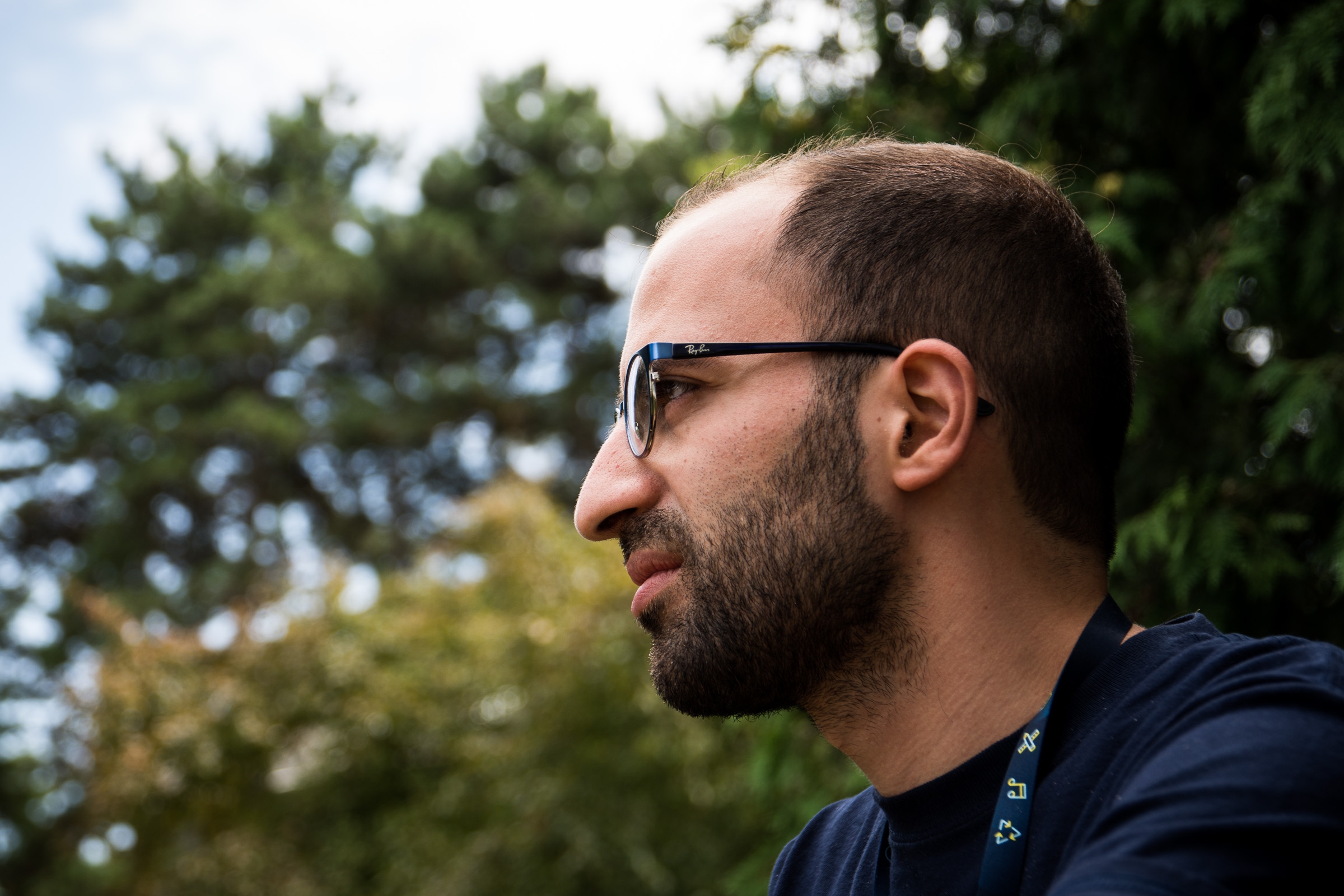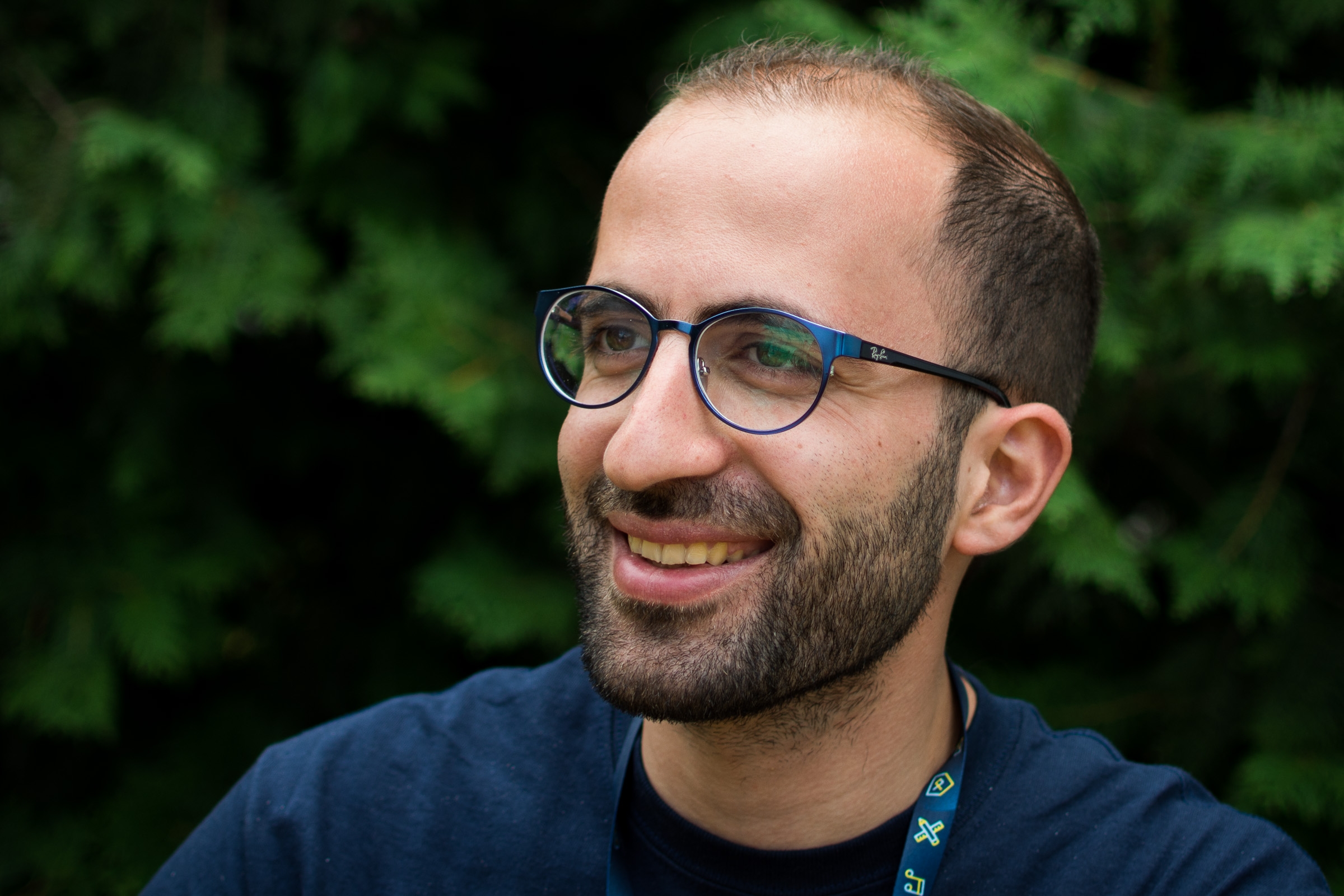A Syrian Christian visits Debrecen. This is not the beginning of a fiction story, this is reality at the 2017 Starpoint Festival. Bassel Fahed's name speaks to his bravery in coming here all the way from the distant Mediterranean port of Latakia: his last name, Fahed, originally means “cheetah” or “some kind of tiger” as he says, while his first name, Bassel, means “courageous”. A member of the National Evangelical Presbyterian Church of Latakia, Bassel came as a delegate of the Fellowship of Middle East Evangelical Churches (FMEEC), an ecumenical organisation comprised of Protestant churches in the Middle East.
The fact that you are here is even stronger a statement than the meaning of your name. How did you get here?
Actually, by an invitation. The FMEEC contacted several evangelical churches in Syria and Lebanon, including my church, and our elders and pastor chose me, as my English is good.
I believe not too many of us know about Christianity in Syria. Could you give us a brief introduction?
I cannot give current figures as there is no official data available, but previous figures say that between 10 and 20 percent of the population in Syria were Christians before the war. The majority were Orthodox, we Protestants would form about 5 to 10 percent of Christians in Syria. Our church has several thousand members, a few hundred families altogether, and it is the biggest one in the Synod of Evangelical Churches in Syria and Lebanon. The relations among the Protestant and Evangelical churches in Syria and Lebanon are very good. Our church building dates back to the 1920s, but the American Missionaries arrived in the 1840s or 1850s, so that date could be regarded as the origin of our church in Syria. The missionaries built many schools and churches around the country, but since the 1920s our pastors have been only Syrian.

Now we know about the road to Syria, but how was your journey here? I suppose nowadays it is not too easy to travel from Latakia to Debrecen.
First we had to go to Beirut, each one of us in the Syrian delegation from different towns, take a plane to Istanbul and then change for a flight to Budapest. For Syrians to get into Lebanon we need to provide some proof of the reason of our journey, but I, as a doctor, only had to show my card from the Union of Doctors.
How is the situation in your city, Latakia, currently? What we hear in the news about Syria is not too promising…
My city had only a short period of warfare, altogether less than a year, but right now from a security point of view it is stable and safe. The fighting in the areas surrounding my city stopped last year. The main problem in Latakia, which is also a problem for every safe city in Syria, are the waves of displaced people and the economic problems. In the last years the population of Latakia, originally around 1 million including the suburbs, too, has doubled or tripled, so now it is 2 or 3 million living there.
You studied medicine. Being a doctor, what do you see as your current task in such a situation?
I’ve chosen medicine because I like sciences and human biology a lot. Also, I realised, that this way I can help people. I am doing my residency in internal medicine, which is 2 years and then cardiology, which is another 3. But you have to know that in my country as a young doctor the salary is very low. You would need to wait a long time until you can start your own clinic and make a living. So I have to be moderate about my ambitions and expectations.

How do you see the role of your church in answering the current situation in Syria?
I can’t represent an official opinion, but personally I think that our church has performed well in the current crisis, focusing on the humanitarian issue rather than taking a side in politics. This humanitarian focus was accompanied by a message of not discriminating against those following different religions. There are so many displaced people in my country and my city, many of them Christians, but even more Muslims. I experienced that many organisations focused on their own denominations to help. I think our church did a little bit better in that respect.
You mentioned it was your first trip to Europe. What are your experiences?
I found Budapest a very beautiful city, I think it looks a bit like Beirut. I like that it is a horizontal city with no skyscrapers, that is very charming for me as a tourist. And this conference was a unique experience here, huge and really well organised. As a church and spiritual conference I have never experienced anything to be this big. This was new for me. The organisers were also very kind and supportive.
What image did you have of Hungary before?
Actually, I did not know so much of Hungary in specific. I think I was influenced by Western culture from the beginning, so even if I saw things I had not physically been familiar with, I felt they were not so strange because I had seen them before. Perhaps this is due to the power of media. The only strange thing is that I am not decided yet as to whether I want to share with anybody that I am a foreigner and where I came from.
Why is that?
I don’t know. I just try to avoid any confrontations. Perhaps it is because of the stereotypes of the current situation. When I say where I am from, I would prefer to avoid any misunderstandings.

As part of the international team of visitors at Starpoint Festival, what is your best memory?
It was very touching when we gathered at St. Columba’s Church of Scotland in Budapest. We had a really deep conversation about many issues, including women’s role in the church, the refugees’ issue, and other topics interesting for all of us. The similarity of our churches, opinions, and feelings made me feel that there is hope, and we can always work together with our friends to spread our thoughts and beliefs.
What is the strongest takeaway for you? If you had to write a postcard, what would you put on it?
I think I touched a little bit of the spirit and the enthusiasm here. We need to get a little bit of that in my church and my city, to make our church and faith grow strong and live again. In my church, I think, we are fine theologically, influenced by modern theology, the Universal Grace Theology, but we need some sparks to be more enthusiastic, more active, more willing to do something, to spread our faith. I would tell them there are many similar things we could do like our counterparts in Hungary.
We wish you this to come true.